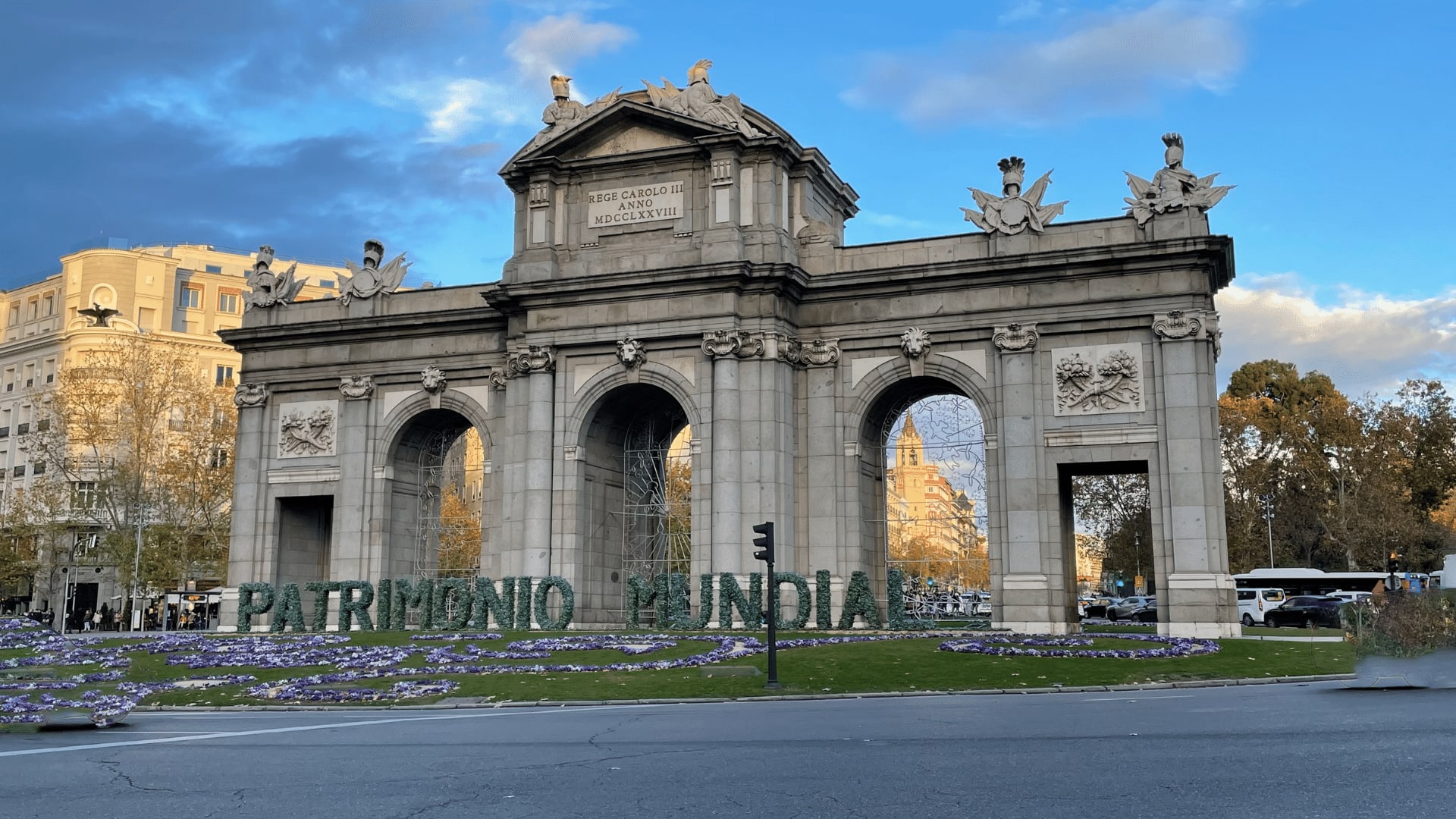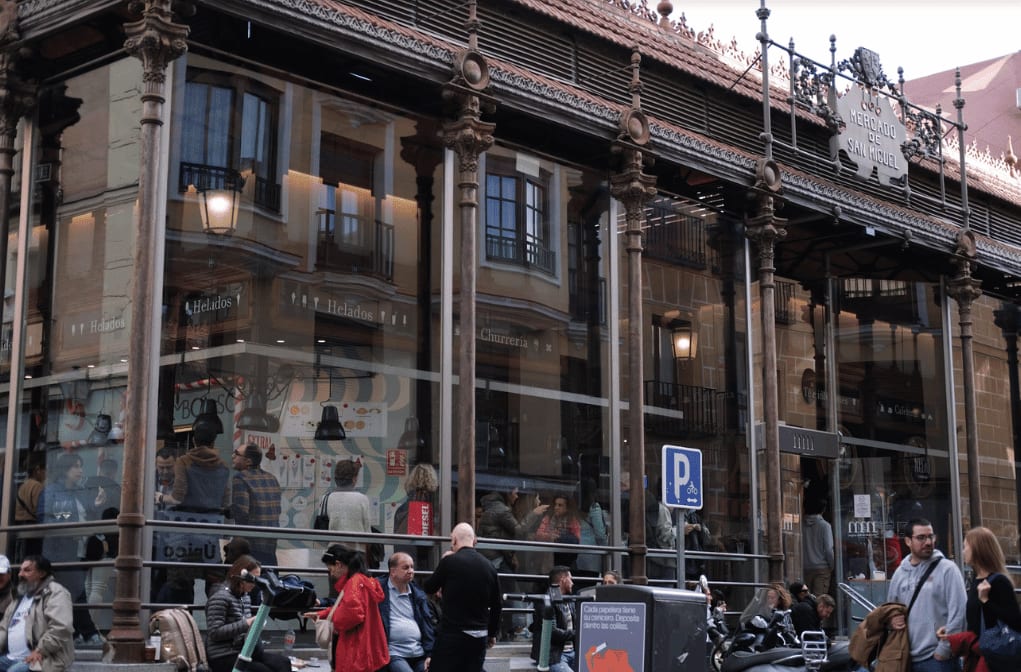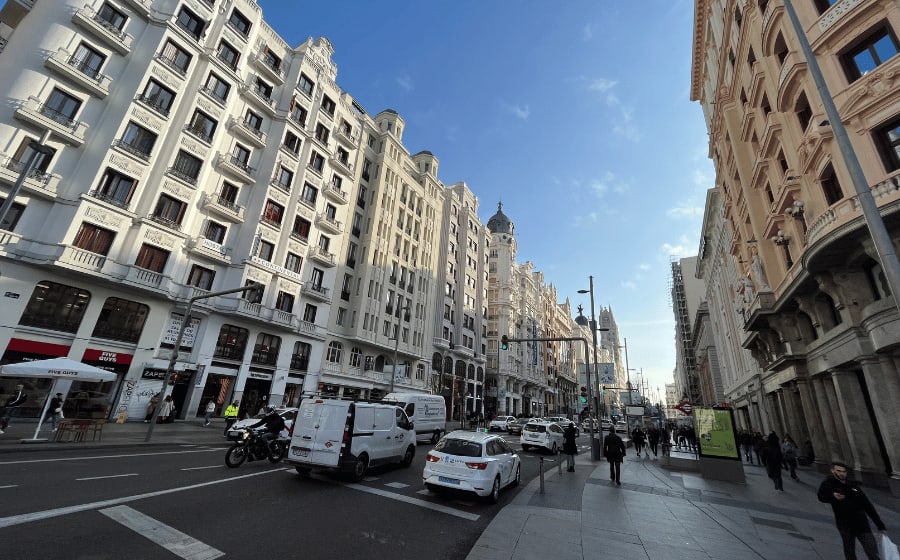List of Public Holidays in Madrid (2023 and 2024 calendar)
February 7, 2023
Win a FREE Trip to Spain!
Exciting Announcement! For the first time, we're thrilled to offer exclusive trips to the heart of Spain - an experience like no other. This isn't your typical tourist journey; it's a unique opportunity to immerse yourself in authentic Spanish culture, alongside real locals and our passionate team.
But there's more! Simply by requesting information about this amazing trip, you'll be entered into a special draw to win a Fully Paid Trip to Spain for Two. And that's not all - everyone who inquires will receive an exclusive bonus gift, valued at $500, available only now.
Ready to Discover the Real Spain?Click Here ↑ to Request Information & Enter the Draw!
Are you planning to come to Madrid? Don’t be caught off guard this year with Madrid’s public holidays in 2023! 😎
Whether you live in Spain or are just visiting, it’s important to note the dates of Madrid’s public holidays. Why? Because this way, you will avoid surprises when you arrive in the Spanish capital, such as closed stores, closed restaurants, closed or reduced opening hours of typical tourist attractions, etc.
Therefore, you must know the national holidays in Madrid for 2023 when planning your vacation and trip to Spain. This way, you will ensure not to miss important landmarks or activities, as well as enjoy some of its celebrations, such as the Feria de San Isidro or the incredible parade that takes place on the Day of Hispanidad.
Here I leave you a list of Madrid’s public holidays so you can write them down and organize your days!
P.S.: Keep in mind that public holidays will vary depending on the year. However, in this post, we will see all the public holidays we can have in Madrid along the year.
*At the end of the article, I have included two calendars with the holidays of 2023 and 2024.
Table of Contents ▼ ▶
New Year’s Day - Día de Año Nuevo
New Year’s Day is a celebration that takes place every year on January 1st in Spain. It consists of the celebration of the end of a period and the welcome to a new one.
It is a holiday, so Spaniards take advantage of the day to rest and renew their energies for the following year.
January 1st is the day that follows the unique and big New Year’s Eve celebration on December 31st.
The 31st of December is a day when the partying and fun go on until well into the early hours of the morning. If you want to start the year off on the right foot, enjoy New Year’s Eve in Madrid at least once in your life!
We have several posts dedicated to New Year’s Eve in Spain that you will love and that will help you to see how New Year’s Eve is lived in Madrid and in some parts of Spain:
Why is Spain The Perfect Place to Celebrate New Years?
7 New Year Traditions in Spain for Powerful Beginnings
12 “Lucky” Grapes: A Curious Spanish Tradition on New Year’s
Epiphany - Día de Reyes
The Three Wise Men is the most beloved Spanish tradition among children during Christmas and is celebrated on January 6. In Spain is known as “Día de los Reyes Magos.”
In Madrid, as in many parts of Spain and the world, we have several traditions:
The letter to the Three Wise Men: it is traditional that children write, days before, a letter where they tell how good they have been during the year and ask for different gifts.
Three Wise Men Parade: it is an event that dates back to the end of the 19th century and takes place during the afternoon of January 5. In different parts of Spain, you can enjoy different parades of floats in which the Three Wise Men and their pages go through the streets, greeting families and children and handing out candies. The Madrid Parade is one of the most popular in Spain and one of the most beautiful.
The magical night: on the night of January 5, Spanish families prepare their homes for the arrival of the Three Wise Men and their camels.
In my house, we go crazy and put everything from water and bread for the camels to wine and some sweets for the Three Wise Men. In addition, we leave the shoes under the tree so that they know where to leave the gifts of each one.
On January 6, we get up early, so happy and nervous, and we go to check if the Three Wise Men have left any gifts under the Christmas tree. It is a lovely and exciting tradition, especially for the little ones!
Roscón de Reyes: it is a typical sweet of these dates in Spain. Families get together on January 6 after opening their presents and eat this delicious cake together. Inside the Roscón, there is usually a little surprise, usually a Christmas figurine.
In my house, we say whoever gets the figurine will have good luck that year.
If you want to know where this tradition comes from and what other countries besides Spain celebrate the Day of the Three Kings, do not miss this article:
Celebrate “Día de los Reyes Magos” for a Magical Time in Spain
St. Joseph’s Day - San José (Father’s Day)
Father’s Day in Spain is celebrated on March 19, coinciding with St. Joseph’s Day.
The Catholic Church chose St. Joseph’s Day to commemorate Joseph, husband of the Virgin Mary.
On this particular day, the father’s role in the family is recognized, and the values of a good father and a good husband are considered. It is a small tribute to all those fathers.
The objective is to get together with the family to celebrate and thank the fathers for their dedication to the family by spending quality time together.
If you want to know the origin of this celebration and how it is celebrated in Madrid and many parts of Spain, click on the following post. Ohh! There is also a section where I share the best plans and gift ideas!
Father’s Day in Spain: How Is It Celebrated? & 3 “Día del Padre” Traditions
Maundy Thursday - Jueves Santo
Holy Thursday is a Christian feast celebrated annually on the Thursday before Resurrection Sunday during Holy Week. On this day, the Catholic Church commemorates the institution of the Eucharist at the Last Supper and the washing of the feet performed by Jesus.
It is the fifth day of Holy Week, preceded by Holy Wednesday and followed by Good Friday (which we will explain just after).
Every year, the streets of Madrid, like many other cities in Spain, are filled with processions organized by different brotherhoods, which are attended by thousands of people to enjoy this popular tradition. Whether by tradition or religion, it is one of the most anticipated dates of the year!
Maundy Thursday in Madrid is characterized by the processions of the images of “Nuestro Padre Jesús del Gran Poder,” “María Santísima de la Esperanza Macarena,” “Jesús El Pobre,” “Dulce Nombre,” and “El Divino Cautivo.”
Good Friday - Viernes Santo
Good Friday is a Christian holiday commemorating the death of Jesus of Nazareth. It is celebrated during Holy Week, after Holy Thursday, and before Easter Sunday.
On this day, the Catholic Church commands its faithful, as a penance, to keep fasting and abstinence from meat. It is a day to remember the passion and death on the cross of Jesus of Nazareth, the Messiah.
On Good Friday in Madrid procession Jesus of Medinaceli, the Divine Captive, the Christ of the Alabarderos, the Holy Burial, and the Seven Sorrows. In addition, there are many processions, Stations of the Cross, and religious events in neighboring parishes in Madrid’s capital districts.
Don’t miss our post about Easter in Spain!
Why is Easter so Special in Spain? Holyweek Customs & Best Cities
Labour Day - Día del Trabajo
Labor Day, also called Workers’ Day, was first celebrated on May 1, 1889. Since then, it has been celebrated every year on May 1.
Although it should be mentioned that this celebration was banned for four decades. It was in 1978 when the celebration was finally relegalized and reinstated as a national holiday. Since then, every May Day has been marked by protests and demonstrations throughout the country, celebrating social advances and claiming workers’ rights.
The day was created in honor of the struggle of the working class, which, through protests, achieved a reduction of the working day to eight hours. It is a date with an international character, which honors the labor rights achieved by the labor movement worldwide.
If you want to know how this celebration came to Spain, how it is celebrated, and some curious facts, take a look at this article:
Community Festival of Madrid - Día de la Comunidad de Madrid
On May 2 of each year is celebrated the Day of the Community of Madrid, the regional holiday of this autonomous community of Spain.
This day commemorates the uprising of May 2, 1808, in which the people of Madrid rebelled against the French occupation of Spain to expel this army, which was taking much of the Iberian Peninsula. This event was the first of the Spanish War of Independence.
Nowadays in Madrid, there is a celebration that includes a floral offering to the heroes of May 2, 1808, in the Florida Cemetery, a parade in the Puerta del Sol with the laying of a wreath to the plaques of gratitude to those who fought, and a ceremony of awards of the Order of May 2 and the Medal of the Community of Madrid at the headquarters of the Presidency.
If you want to know more in detail and know everything about this emotive celebration besides discovering monuments and paintings related to this day, click on the following link:
Does Spain have an Independence Day? Yes, but not on October 12th
Feast of St. Isidro - San Isidro
Every May 15, Madrid presents one of its most festive and welcoming faces. It is the day of San Isidro, the patron saint of Madrid.
On this day, you can enjoy traditional celebrations such as the pilgrimage in the Pradera de San Isidro, the bullfighting fair, typical gastronomic dishes, an attractive musical program, and shows scattered in various corners of the city.
In addition, the city’s bakeries are filled with small sweets that are pure temptation! You will have to try them all!
Assumption Day - Asunción de la Virgen
Every August 15, the city of Madrid prepares to celebrate the Solemnity of the Assumption in the Marian invocation of the “Virgen de la Paloma,” one of the most beloved devotions in Spain.
Curiously, the “Virgen de la Paloma” is not the patroness of the Archdiocese of Madrid -a title that belongs to the Virgen de la Almudena- but many Madrilenians consider her the “popular patroness” of the city and venerate her canvas located inside the parish “Virgen de la Paloma y San Pedro el Real,” in the neighborhood of La Latina, in the center of Madrid.
If you want to know more about the Virgen de la Paloma and other famous virgins of Spain, do not miss this post:
Hispanic Day - Fiesta Nacional de España
The National Day of Spain is the official name given to the National Day of Spain and has been celebrated every October 12 since 1982. It is also known as the Day of the Hispanidad.
This celebration traditionally includes a military parade attended by the king, the royal family, the government president, and the state’s high representatives.
if you are in Madrid do not miss this festival because it is an absolute spectacle!
We have a post entirely dedicated to this special celebration, with super interesting facts:
All Saint’s Day - Día de Todos los Santos
Every November 1st, the Community of Madrid celebrates All Saints’ Day, a day to remember those who are no longer with us and to comply with the traditions that the people of Madrid have been following for so many years.
In Madrid and the rest of Spain, the most traditional thing is for relatives to go to the cemeteries with bouquets of flowers to visit their loved ones who have passed away.
In all the churches, special masses are celebrated in memory of all these people, and the cemeteries are filled with flowers and colors.
If you want to attend a beautiful ceremony on All Saints’ Day in Madrid, go to the Almudena Cathedral, which is decorated with many beautiful flowers and celebrates several masses at different times.
A curious fact is that All Saints’ Day is the day of the year when most flowers are sold!!
On this day, you can find some of the most typical sweets of this date in Madrid as “buñuelos de viento” and “huesos de santo.” They are undoubtedly the star products of this holiday!
In addition to All Saints Day, we have a post in which we talk about Halloween and how it is celebrated in Spain, along with our traditions. Do you want to take a look?
Our Lady of the Almudena - Fiesta de la Almudena
On November 9 is celebrated the feast of the Almudena since 1908, a celebration of the capital of Madrid in honor of the Virgin of Almudena, patron saint of the city, along with San Isidro.
If you are in Madrid during this holiday, do not miss the best plans to do in the city during this particular date:
Attend the floral offering and the procession of the Almudena to pay tribute to the Virgin. The parade goes from the Almudena Cathedral to the Plaza Mayor and back.
Taste the crown of the Almudena. Besides being the city’s patron virgin, she is also the patron saint of the pastry guild. At the end of the ’70s, the Madrilenians created this new sweet to pay tribute to the Virgin. It is a typical Madrilenian cake in the form of a “Roscón de Reyes” filled with cream or truffle inside.
It is estimated that 300,000 units of this dessert are sold every year!
If you want to know more about the Virgen de la Almudena and other famous virgins of Spain, do not miss this post:
Constitution Day - Día de la Constitución Española
Spanish Constitution Day is celebrated every December 6th. It is a National Holiday in which the rights and obligations of all Spanish citizens are set out.
It was approved in 1978 and is still in force today, although it has undergone many reforms over time.
Would you like to know more about Spanish Constitution Day, its origin, how it is celebrated and curious facts? Then don’t wait any longer and click on the following article!
Constitution Day in Spain: Origin, Celebrations & 11 Fun Facts
Immaculate Conception Day - Día de la Inmaculada Concepción
Every December 8 is celebrated in Spain, the Day of the Immaculate Conception, a national holiday framed within the so-called “December long weekend” or “the Constitution long weekend.”
It is a religious holiday that commemorates the birth of the Virgin Mary. This day is one of the most important for Catholic Christians since it is not only a non-working day to celebrate and have a good time, but the worship leads them to perform liturgical acts of the religion.
It is one of the most awaited religious celebrations that precede the Christmas holidays and is considered a holiday in the work calendar.
On the same day, the 8th, the traditional mid-afternoon procession takes place through the streets of Madrid and other Spanish cities with the image of the Virgin. All these acts are usually accompanied by solemn masses and continue until several days later.
In Spain, the Immaculate Conception is the national patroness and, therefore, only on this day priests can wear a purple chasuble, instead of the traditional pink chasuble, for the masses. In addition, the Virgin is also the patron saint of the Spanish Infantry.
Christmas Day - Día de Navidad
December 25th is the official day of Christmas! During this day, the birth of baby Jesus is celebrated.
The tradition of the Madrilenians and practically all Spaniards is to meet to eat with the family and enjoy this special celebration together.
If you don’t know where to celebrate Christmas this year, Madrid may be your candidate! During the Christmas holidays, you will enjoy an incredible atmosphere, and you will see the whole city decorated with thousands of lights.
We have several posts with all the information you need to know if you want to spend the best Christmas in Spain!
Spanish Christmas: How We Celebrate a Merry and Bright Holiday
9 Spanish Traditions for a Holly Jolly Christmas in Spain
11 Santa-approved Christmas Markets Worth Visiting in Spain
9 Spanish Cities with Surprisingly Good Christmas Lights
13 Spanish Christmas Foods You’ll Love: Call Your Santa Bakers!
I thought it would be interesting and helpful to create two calendars with all the public holidays of 2023 and 2024 so you can start organizing your days according to what suits you best.
So here we go!
This is the 2023 calendar with the public holidays of the city of Madrid:
| Day | Date | Holiday Name |
|---|---|---|
| Friday | Jan 06 | Epiphany - Día de Reyes |
| Monday | Mar 20 | St. Joseph’s Day - San José (Father’s Day)* |
| Thursday | Apr 06 | Maundy Thursday - Jueves Santo |
| Friday | Apr 07 | Good Friday - Viernes Santo |
| Monday | May 01 | Labour Day - Día del Trabajo |
| Tuesday | May 02 | Community Festival of Madrid - Día de la Comunidad de Madrid |
| Monday | May 15 | Feast of St. Isidro - San Isidro |
| Tuesday | Aug 15 | Assumption Day - Asunción de la Virgen |
| Thursday | Oct 12 | Hispanic Day - Fiesta Nacional de España (Día de la Hispanidad) |
| Wednesday | Nov 01 | All Saint’s Day - Día de Todos los Santos |
| Thursday | Nov 09 | Our Lady of the Almudena - Fiesta de la Almudena |
| Wednesday | Dec 06 | Constitution Day - Día de la Constitución Española |
| Friday | Dec 08 | Immaculate Conception Day - Día de la Inmaculada Concepción |
| Monday | Dec 25 | Christmas Day - Día de Navidad |
*Father’s Day is always on March 19, but this year 2023, as it falls on a Sunday, the holiday will be moved to Monday, March 20.
Regarding the 2024 calendar, I have to say that this calendar is not definitive.
The holidays of the Comunidad de Madrid for the year 2024 shown are based on the holidays of previous years. We will update it when the definitive dates are known, but in the meantime, these would be the public holidays:
| Day | Date | Holiday Name |
|---|---|---|
| Monday | Jan 01 | New Year’s Day - Día de Año Nuevo |
| Thursday | Mar 28 | Maundy Thursday - Jueves Santo |
| Friday | Mar 29 | Good Friday - Viernes Santo |
| Wednesday | May 01 | Labour Day - Día del Trabajo |
| Thursday | May 02 | Community Festival of Madrid - Día de la Comunidad de Madrid |
| Thursday | Aug 15 | Assumption Day - Asunción de la Virgen |
| Friday | Nov 01 | All Saint’s Day - Día de Todos los Santos |
| Friday | Dec 06 | Constitution Day - Día de la Constitución Española |
| Wednesday | Dec 25 | Christmas Day - Día de Navidad |
Some important dates are not mentioned in the table above because, in 2023, they are not considered public holidays as they fall on a weekend. These are:
- Epiphany: Saturday, January 6
- Hispanic Day: Saturday, October 12
- Our Lady of the Almudena: Sunday, December 8
Have you been in Madrid on any of these public holidays and were caught by surprise?
If so, we would love to hear about your experience and how you lived it!
In case you haven’t been to any of them, take a look and see which one you would most like to visit, as being local festivities is the perfect opportunity for you to soak up the Spanish culture!











